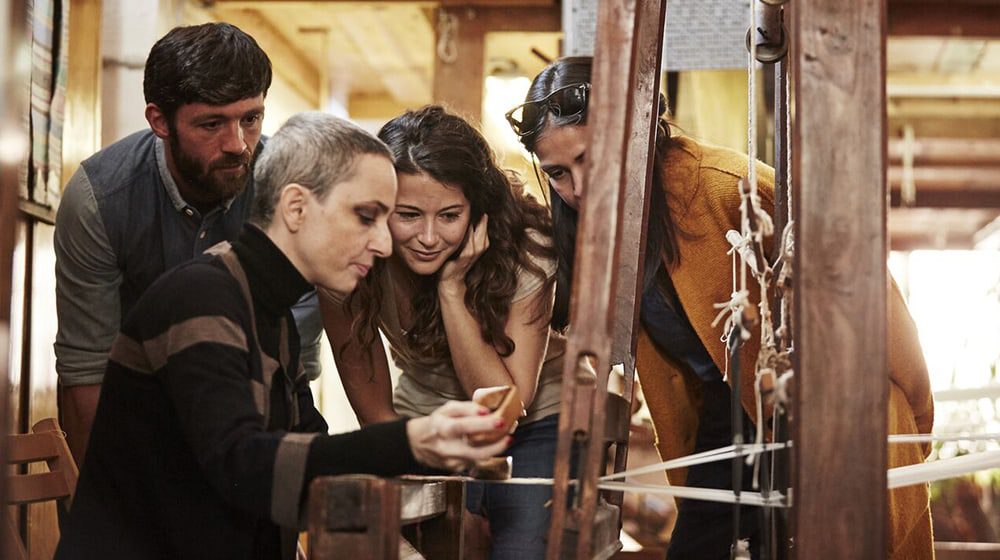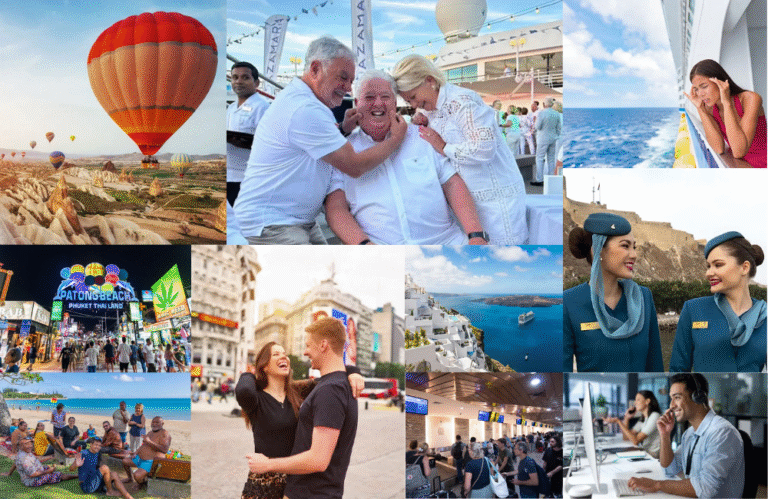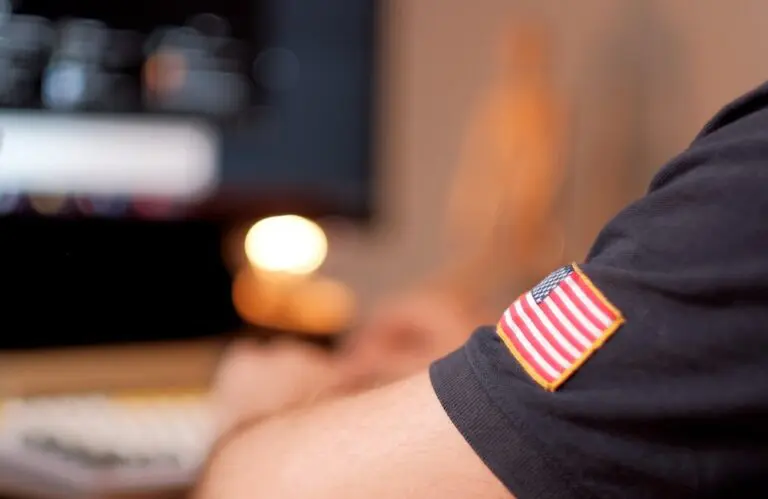‘Overtourism’ has garnered a lot of attention in recent times. But what exactly does it mean and how can we avoid it? More importantly, what role can guided travel play in solving the issue?
Despite the known fact that tourism brings a wealth of benefits to small regions, a destination that attracts excessive crowds can also often face serious implications. From small ports becoming congested with hulking cruise ships to local businesses being forgotten about in favour of popular commercial stores, overtourism is quickly becoming a serious concern.
So it’s important now, more than ever, for us all to ensure that our travel supports local communities. Guided travel, when done right, can preserve the destinations we know and love. Here’s how:
Venture outside of the hotspots

Although we’ve all had the big ticket items on our bucket list at some stage, the joy in stumbling across an undiscovered cafe or local hangout can quickly turn into a holiday highlight – as well as an inadvertent way to help support the local community.
Trafalgar does this by encouraging guests to discover the iconic as well as get below the surface of the places we visit by exploring villages, going beyond the expected and connecting with communities.
We not only promote lesser-known areas for our guests to explore, but we also ensure we are maximising the immense benefits of for more people to experience the beautiful places we visit, all year-round.
Support small, local businesses & people

Opting to take part in more local experiences is not only the perfect way to get to the heart and soul of a destination but also to ensure these experiences can be enjoyed by future generations to come.
“However, it is imperative that when taking action in the destination, it is done so in genuine partnership with locals – the emphasis is on working with them to ensure the betterment of the places they call home,” Trafalgar CEO Gavin Tollman explained.
Like in Perugia, Italy, Trafalgar guests have the chance to visit the 1921 Laboratorio Giuditta to learn traditional Umbrian weaving techniques from Marta – the only person in the world still using Jacquard wooden looms to create wool and silk pieces.
Another example is in Mississippi, USA where hosts, the Tanners introduce guests to their cotton plantation and explain how each visit helps to preserve the history of their estate and the Mississippi cotton plantation heritage.
Travel in shoulder season

“We must break the bottleneck approach by staggering travellers across the seasons,” Tollman said.
It’s easy to forget that summer holiday hotspots like Venice and Dubrovnik are still the homes of many residents, long after the ice cream stands are pulled down.
Although tourists bring a booming economy throughout peak season, it’s important to consider travel during the shoulder season to help sustain the livelihoods of many struggling locals.
“Seasonal tourism management alleviates peak season pressures – it allows us to be enablers not eliminators when it comes to helping local businesses in the likes of Dubrovnik, Venice, Barcelona or wherever it may be,” Tollman said.
Contribute to the protection of the location

Safeguarding the natural beauty, cultures and traditions of the people and places we visit is crucial to avoiding the negative impacts of overtourism. From offsetting your carbon emissions when flying to saying no to printed travel documents (a habit Trafalgar actively encourages) we can all do our part to practise sustainable tourism.
An initiative set up by The National Trust, an independent charity that Trafalgar actively supports, demonstrated the power of sustainable practices last year in Ireland.
Prior to 2012, the UNESCO-listed Giants Causeway was struggling to cope with the increasing volume of tourist visits. The charity realised that by rebuilding their visitor centre with local, sustainable materials, they could embrace the opportunity to welcome more guests without impacting the environment.
“Trafalgar is proud to have been involved with such a commendable initiative,” Tollman said.
<< CLICK HERE TO READ THE FULL BLOG >>
- READ: Through the love of travel we have the opportunity to…
- READ: Travellers, it’s time to put social media on pause
- READ: Trafalgar dedicates a program to Africa






